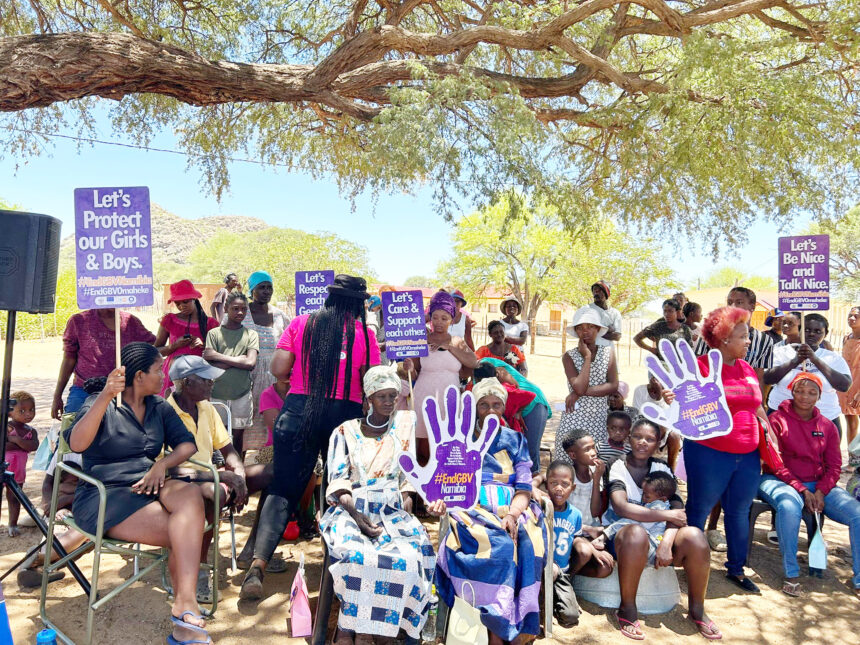Lahja Nashuuta
The lack of a general sense of respect among residents, alcohol abuse and unemployment among men have been fingered as some of the causes of gender-based violence (GBV) in Omitara.
These surfaced during the implementation of the Gender Equality/Combating Gender-Based Violence Project at the settlement recently.
It is an initiative of the Omaheke Community Radio, supported by the United Nations Population Fund (UNFPA) through the European Union, which is being unveiled in five regions.
“The project is in line with the 2030 Agenda, the National Gender Equality Policy and the National GBV Action Plan which promotes gender equality and equity as well as the empowerment of women and girls, with a commitment to leave no one behind,” Levi Katire, one of the project organisers and station manager at the Omaheke Community Radio, said.
He stated that the project is necessitated by the realisation of the fifth goal of the sustainable development goals.
Speaking at the event, Katire said Omitara was selected as part of the four localities to be visited in the Omaheke region due to the rate of GBV prevalence at the settlement.
Omitara is in the Okorukambe constituency of the Omaheke region, located some 99 kilometres from Gobabis.
It has a population of between 800 and 1 000 inhabitants.
“The place has only four churches and about 15 shebeens, which is a testament to the increasing abuse of alcohol among the inhabitants, and a huge contributing factor to GBV prevalence. Then comes unemployment, especially among men, which leads them to not being able to provide for their families. This creates disorder in those households,” he observed.
Weighing in on the issue, Magdalena Goagoses, a UNFPA official based at the Omitara Clinic, lamented the lack of proper rehabilitative measures at the settlement’s only health establishment.
“Our clinic has no one to talk to people about their day-to-day problems, such as GBV or children refusing to go to school, unlike at other similar clinics where you will find doctors and counsellors. My request is for the government to provide us with people, such as councillors, for our small community,” Goagoses said.
Reflecting on the day’s activities, Cleruarerzia Ganeb spoke highly of the revelation that GBV happens to everyone, and does not have a face.
“GBV does not discriminate but can be stopped when all parties involved learn to respect each other. It can also be stopped when there is no dependency in the relationship,” he said.
He went on to relate a story in which a man committed suicide because his lawfully wedded wife allegedly cheated on him.
He cited that this incident would have been avoided if the victim had proper information on what to do in that instance.
“I urge the government to travel more to remote areas where they can educate men, in particular, on how to behave in situations that pertain to GBV to avoid such fatalities,” he stressed.
The organisers have it that GBV remains a significant challenge in the community, impacting individuals, families and the broader society, hence the need for an interactive session under the theme ‘Ending GBV Namibia’.
It will raise awareness, promote prevention strategies and empower the community to take collective action.



